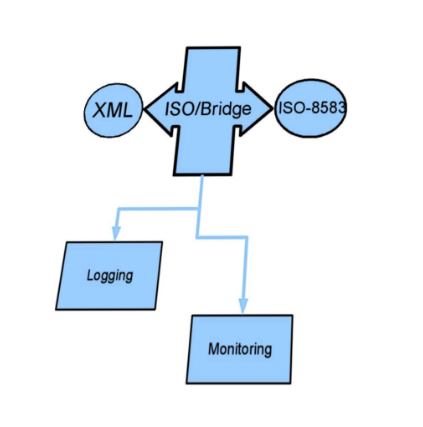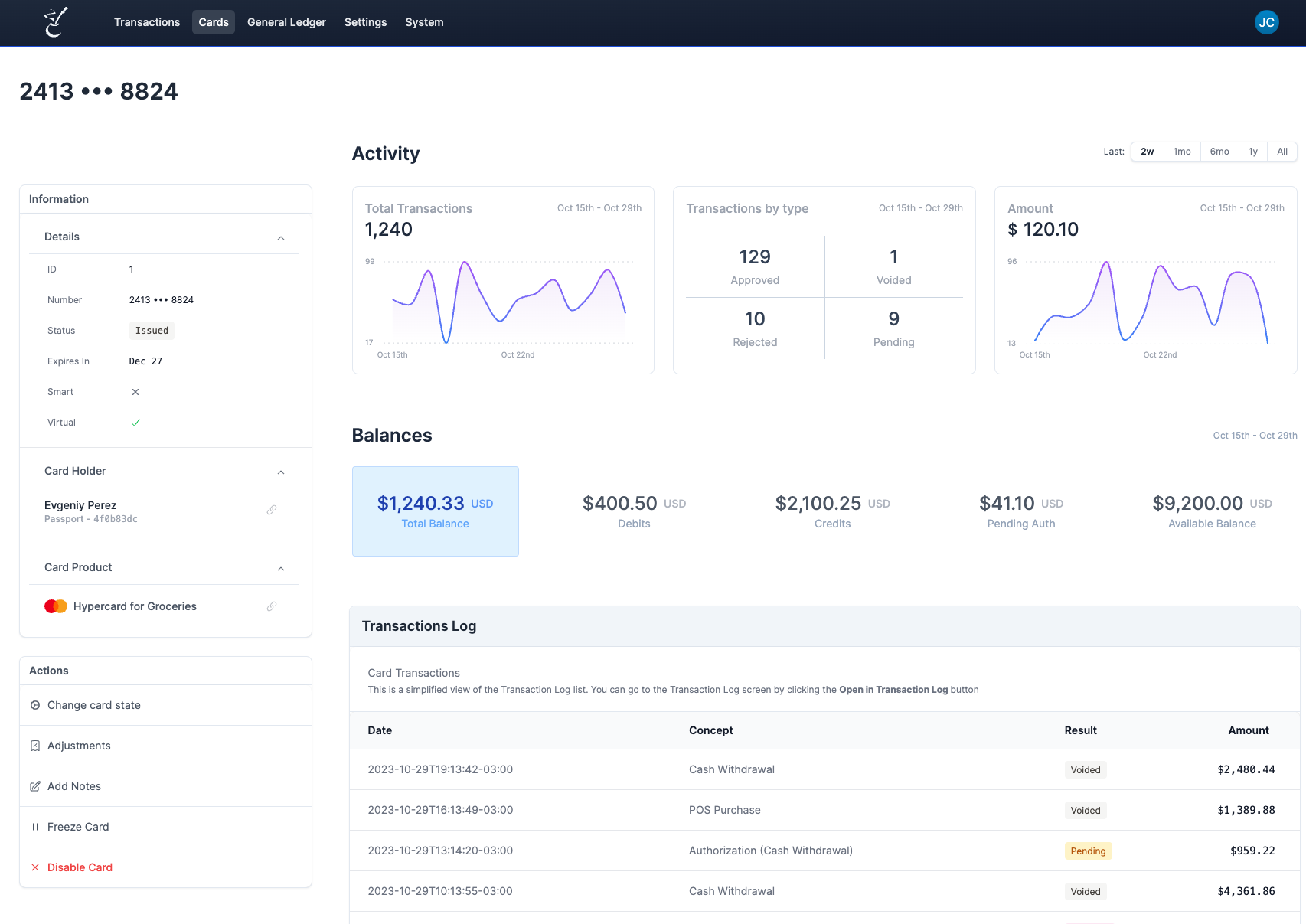Projects
Open Source and "Secret Source" jPOS projects.
- Open Source
- Secret Source
Open Source
jPOS Open Source projects are provided under the AGPL license. Transactility also offer a business-friendly license option at a cost that is surprisingly modest compared to typical industry standards. This alternative provides a budget-friendly solution for enterprises seeking tailored licensing terms, blending commercial flexibility with the advantage of cost-effectiveness. It's an ideal choice for businesses looking for the benefits of jPOS projects without the hefty price tag often associated with commercial licenses in the industry.
jPOS
jPOS is the main project, the core library and framework.
It began as a virtual POS solution on top of JAVAPC, tailored for Kiosks and POS cash registers in supermarkets. However, its ISO-8583 component quickly became integral to payment gateways, as well as acquirer and issuer systems.
The acronym POS was swiftly redefined to stand for 'Professional Open Source'. Over the last 25+ years, we launched and have seen steady growth in our consulting business centered on the project. This evolution showcases our sustainable open source business model that continues to thrive.
jPOS proficiently handles the intricate aspects of the ISO-8583 protocol, encompassing communication and flow control components. It also supports ANS X9.24 and EMV encryption through its software security module, offering interfaces with standard HSMs. With PCI-grade configuration, metrics, profiling, distributed tracing and structured logging, jPOS serves as a robust base for crafting dependable payment solutions.
jPOS-EE
In addition to managing foundational messaging protocols, payment applications require integration with databases and a myriad of other entities like Cards, Cardholders, General Ledger Journals, Accounts, external systems of records, Terminals, Merchants, Authorization and Transaction capture, Settlements, Batches, Fees, Loyalties, Rewards, Alarms, etc. These are complemented by essential support structures for system configuration, audit logging, user management, and more.
In 1999, J2EE emerged as the latest trend, bolstered by platforms such as IBM's Websphere, the early versions of JBoss, the Orion application server and many more. Thus, it was a logical decision to build applications using jPOS atop this foundation. However, the hardware capabilities of that era weren't as advanced as they are today. As applications expanded in complexity, redeployment times sometimes spanned several minutes. These prolonged waits became untenable for the high demands of payment applications.
Furthermore, users operated on distinct application servers, and our aim was to maintain server neutrality. Consequently, the "EE" in jPOS, which initially stood for "Enterprise Edition", was rebranded to "Extended Edition". jPOS Extended Edition essentially comprises a set of modular components. These can be viewed as plugins or foundational elements commonly utilized in jPOS-driven payment applications.
jPOS-CMF
jPOS is fully compatible with all versions and variations of ISO-8583, including numerous custom extensions. As its popularity grew, we observed instances where two institutions, both using jPOS, faced differences in wire protocols. To address this, we introduced the jPOS Common Message Format, grounded in the most recent standard, ISO-8583 v2003, which was updated in 2023.
The jPOS CMF documentation (pdf) is available in DocBook format.
Institutions looking to define their standards may find it particularly useful and are encouraged to use it as an starting point.
jPOS CMF is widely used in applications such as jCard and jPTS, employing 'Source Stations' and 'Destination Stations' to manage various incoming and outgoing protocols. Internally, these applications utilize a standard message format provided by jPOS CMF. The stations adeptly convert CMF messages to align with the protocols of remote endpoints, accommodating both ISO-8583 based systems and others such as ISO-20022 and proprietary APIs.
Secret Source
The following systems are provided by Transactility under a source-available business-friendly license.
jPOS is a cornerstone in the financial sector, trusted by industry giants and adopted by the world's leading unicorn Fintechs. Often regarded as their 'secret sauce,' jPOS's open-source nature adds a playful twist to this phrase. We fondly refer to it as the 'Secret Source,' highlighting its critical role in powering innovative financial solutions.
Open source software provides a plethora of advantages, such as adaptability, flexibility, and often cost-effectiveness. However, there are inherent risks when relying on software that is not backed by a viable business model and is predominantly dependent on a solitary maintainer. In such scenarios, the software's resilience is jeopardized. Should the single maintainer be unable to contribute or if they shift their focus elsewhere, the software might be plagued with delayed updates, persistent bugs, or even unaddressed security threats. The unpredictable nature of such projects might deter potential contributors and users, given the apprehensions about professional support and timely enhancements.
Moreover, in the absence of a sustainable business model, there are no assurances regarding the software's longevity or its capacity to evolve in tandem with industry requirements. Such unpredictability can leave users and institutions that rely heavily on the software in a lurch, devoid of vital support when facing challenges. This is particularly alarming for mission-critical applications where sustained support, unerring reliability, and stringent security are of the essence.
However, with jPOS, these concerns have been effectively addressed. jPOS isn't just a standalone open-source project; it's robustly backed by Transactility, a distinguished company dedicated to its sustained development and endurance. Transactility counts the founder of the jPOS project and its foremost contributors as members of the company. This synergy ensures that the software is continuously nurtured by experts in the field. Furthermore, jPOS isn't a new player on the block; it boasts a rich history spanning over 25 years, testifying to its enduring relevance and robustness. The strength of jPOS is further accentuated by its vibrant community of over 2000 developers, contributing to and enriching the software ecosystem.
Transactility stands as a profitable enterprise, offering a wide array of services encompassing support, training, and consulting specifically tailored to jPOS. Furthermore, they present advanced jPOS-based applications under a business-friendly license, providing an optimal blend of quality and affordability. Organizations that engage with Transactility's services typically realize cost savings that can range from ten to a hundredfold when compared to alternative competitors. This substantial cost reduction isn't the only benefit; by partnering with Transactility, companies also play an active role in furthering the development of jPOS. This creates a symbiotic relationship where businesses not only receive top-tier services but also contribute to the growth and enhancement of the jPOS ecosystem—a true win-win scenario.
ISO/Bridge

ISO-8583 is a multifaceted standard with countless versions and adaptations. Many vendors have tailored the standard to fit their specific needs, often leveraging private and composite fields. While jPOS is fully capable of implementing all these variations, it's a comprehensive project with numerous components that users need to become proficient with for reliable deployment.
ISO/Bridge simplifies this process by offering an interface based in XML or JSON. This approach allows users to focus on their primary tasks, entrusting the intricate details of the ISO-8583 implementation and wire protocol to the expertise of the Transactility team.
Custom Gateways
At times, implementing ISO-8583 is not enough. Certain endpoints may necessitate HSM integration, PIN translation, EMV validations, Dynamic Key Exchange, and message MACing, ISO-20022 support. Transactility, has years of experience implementing these specialized gateways across all five continents. By leveraging our expertise, you can significantly expedite your product's time-to-market.
jCard
jCard is a full fledged Card Issuing Platform built on top of jPOS and jPOS-EE that is serving thousands of card programs for the most successful Fintechs around the world having over 1 billion cards on file. It's a best of breed system offered by Transactility at the fraction of the cost of the nearest competitor.

jCard provides a robust and moderm REST API as well a jPOS-CMF (ISO-8583 v2023) interface.
jPTS
In the same way jCard implements the issuer role, jPTS (the "jPOS Transaction Switch") implements the acquiring role.
The products mentioned above are crafted and consistently updated using jPOS's finest practices. They have been rigorously tested and run some of the largest, top-tier organizations and encapsulate a wealth of expertise. While these are rooted in jPOS, you have the freedom to design your own applications and attain comparable outcomes.